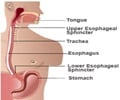Apple Cider Vinegar and Blood Sugar and Lipids
Apple Cider Vinegar can stabilize blood sugar and lipid levels in diabetics and there is enough scientific evidence to substantiate this claim.
Several studies have found that vinegar helps lower blood glucose levels. But how does vinegar do it? Normally, disorders of blood sugar regulation are influenced by dietary changes and the term glycemic index (GI) is used to describe a food affecting the blood sugar. So, foods such as processed grains and flour, potatoes, sugar, etc have a high GI and they raise blood sugar levels more than foods with low GI such as whole grains and beans. Blood sugar remains more stable if high GI food intake is avoided.
Metabolically, vinegar in the daily diet helps lower the GI of foods, that is, vinegar (acetic acid) slows down the rate at which carbohydrates are converted to glucose. What it essentially does is ‘soak up’ the bicarbonate in the lower digestive system. Without the bicarbonate, the carbs are absorbed much more slowly. This is termed as ‘delayed gastric emptying’ and the rate at which the carbs are absorbed is called ‘gastric emptying rate’ or GER. So, if the sugars are absorbed more slowly, blood glucose levels will rise much less, and this will highly benefit people with type-II diabetes.
The point to note is, vinegar will affect blood sugar levels only if carbohydrates are consumed; if carbohydrates are not consumed, the rate of absorption is anyway slow. The type of carbohydrate consumed also affects blood sugar levels. To examine the effect of vinegar on the type of carbohydrates consumed in patients with type-II diabetes, researchers from Athens University Medical School, Greece, conducted a study with 16 type-II diabetic patients. They were divided into two groups. The first group was given a high GI meal on two different days, with and without added vinegar, respectively. The second group was given an iso-caloric low GI meal with the same nutrient composition. The results were interesting. The researchers found that the addition of vinegar reduced postprandial blood sugar levels in patients with type-II diabetes only when it was added to a high GI meal.
Vinegar reduces postprandial blood sugar (PPG) levels in healthy adults as well. Dr. Carol Johnston and colleagues in their study on anti-glycemic properties of vinegar in healthy adults concluded – ‘The anti-glycemic properties of vinegar are evident when small amounts of vinegar are ingested with meals composed of complex carbohydrates. In these situations, vinegar attenuated PPG by 20 percent compared to placebo’. They also found that acetate salts lack antiglycemic properties.
Scientists from the Department of Nutrition, Ahvaz Jundishapour University of Medical Sciences, Iran, found that diet containing ACV administered for 4 weeks significantly decreased LDL cholesterol and significantly increased HDL cholesterol levels in diabetic and non-diabetic experimental animals. ACV also reduced serum triglycerides levels in diabetic animals. Scientists concluded that ACV may be of great value in managing the diabetic conditions. Some believe that the same principle applies in case of weight loss. The debate is still on.











